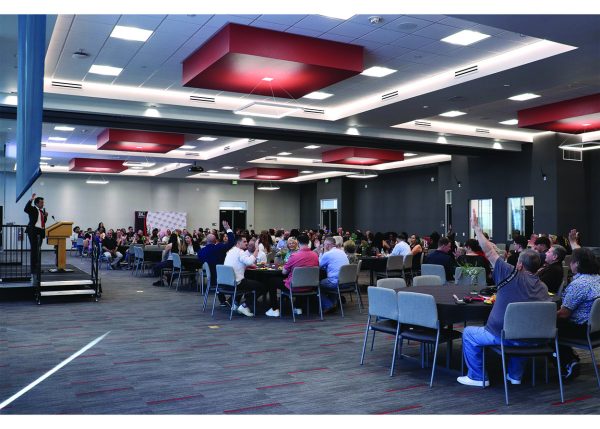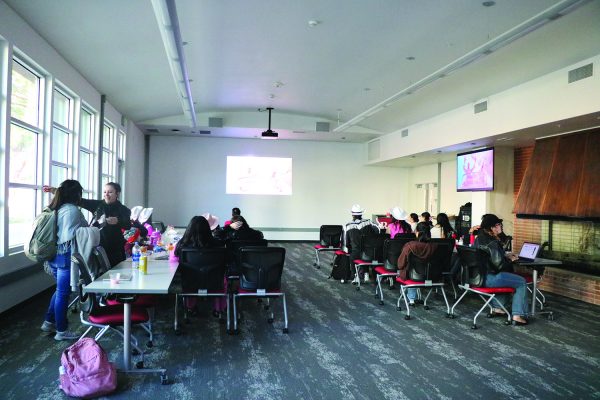KCHC continues work to end homelessness in Kern County
April 16, 2018
The Kern County Homeless Collaborative had their2018 Spring Membership meeting, the KCHC’s goal is to end homelessness in Kern County by collaborative planning and action. At the meeting, they discussed the Built for Zero movement, introduction to the local Cost-Benefit Analysis, and the release of the 2018 Point in Time Count (homeless census) data, on April 3.
United Way of Kern County is the fiscal agent and collaborative applicant for the Kern County Homelessness Collaborative, it is the backbone of the organization. It focuses on hunger and homelessness, financial stability, and early childhood literacy.
Built for Zero movement is a national effort created to aid a group of committed US communities terminate chronic and veteran homelessnessand iscoordinated by the Community Solutions.
On an interview conducted to the Homelessness Resources Administrative Assistant, Jessica M. Janssen, she explained that when it comes to ending homelessness the main thing to do is provide affordable housing and supportive services to the individuals who are suffering from homelessness.
Janssen also informed of an increase in homelessness this year.
“From 2017 to 2018 we are seeing a 9% overall increase in homelessness in Kern County,” she said.
There isa variousreason on why homelessness has increasedthis much over a year. Some of that reasoncan be domestic violence, substance abuse issues, mental health concerns, job loss and among others. Janssen has a different opinion about the reason why homelessness has increasedthat 9% this year.
“I believe the 9% increase is due to lack of affordable housing in Kern County and throughoutCalifornia,” said Janssen.
Janssen explained that Permanent Supportive Housing is being provided to chronically homeless over vouchers, and also by qualifying through Rapid Rehousing. Rapid Rehousing, by Alpha Project, is a program providing affordable housing to people who are homeless, and with a goal of giving them permanent housing. These programs are funded through CoC Program Competition funds from the US Department of Housing and Urban Development.












